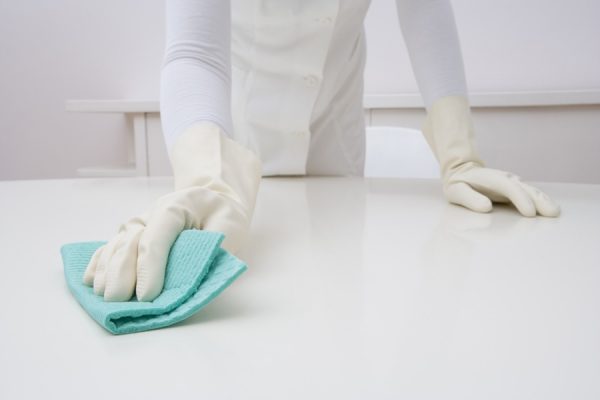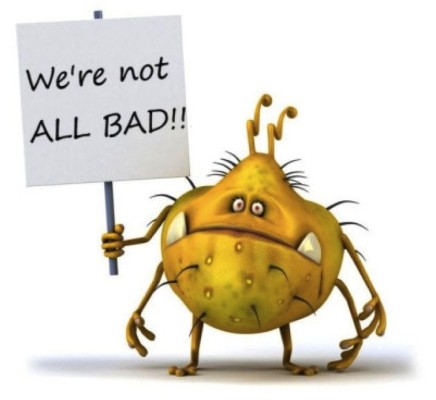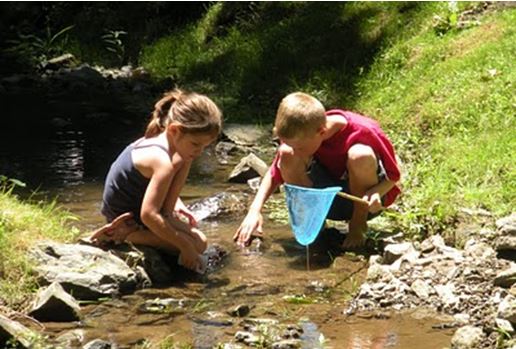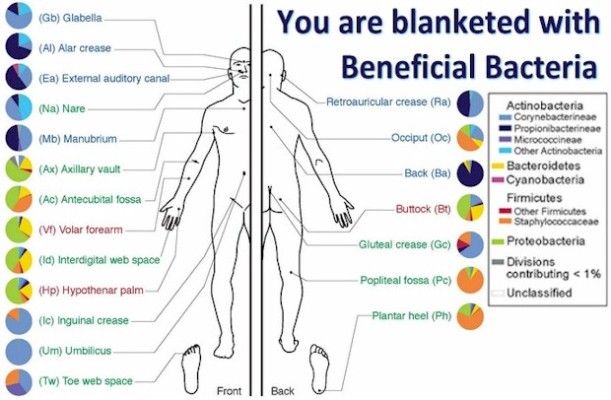
Did you know that 75 million pounds was spent on anti-bacterial wipes in 2017 in the UK??
Over the last century there has been a dramatic rise in asthma and other allergic diseases. One possible explanation for this is the ‘hygiene hypothesis’, which suggests that a lack of exposure to micro-organisms which suggests that a lack of exposure to micro-organisms such as bacteria and moulds, particularly in early childhood, compromises our immune system.
So is excessive cleaning damaging our health?
There is no doubt that some germs are harmful, and that good hygiene in some circumstances is important. You do need to be scrupulously clean, for instance, after handling raw meat or using the toilet, to avoid spreading microbes that can make you ill.
However, we are surrounded by countless other microbes – bacteria, moulds and yeasts – that do us no harm and stimulate our immune system to function healthily.

If over-cleaning is to blame for lack of exposure to these beneficial microbes, then a key question is: how effectively does cleaning, especially the use of antibacterial products, eradicate microbes from our homes?
In fact, no matter how effectively you disinfect a surface in the home, microbes begin to recolonise almost immediately. Bacteria, yeast and moulds travel on skin particles from our bodies, float in the air around us and are present in household dust.
The rapid return of microbes following disinfection suggests that the rise in allergies cannot be blamed on excessive cleaning alone.
Recent research suggests instead that the problem could be a lack of exposure to a sufficient diversity of microbes. This may be because of our increasingly urban lifestyles in which we spend the majority of our time indoors. The natural environment is teeming with complex communities of mostly harmless microbes and in order to be exposed to these, we need to spend time outdoors.

As microbes interact with our bodies and with each other in mixed communities, they make by-products called secondary metabolites that can help strengthen our immune system. Some of these have been exploited by humans – we call these antibiotics. The defence mechanisms that microbes use are constantly shaping our immune response, and so the wider the variety we encounter, the better.
To expose yourself to a healthy diversity of microbes, vary your diet and regularly spend time outdoors. Research indicates that keeping a pet may also help.
Although excessive cleaning may not be the key factor in restricting our exposure to microbes, evidence suggests that antibacterial products are only effective at removing them in the very short term. Excessive cleaning is not beneficial to health in other than a few specific circumstances where the spread of harmful microbes needs to be avoided (such as preparation of raw meat) and is in most cases unnecessary.
If you suspect you or your child has symptoms of asthma, do not hesitate to contact Medcare.
Call on 966 860 258 or email doctors@medcarespain.com

